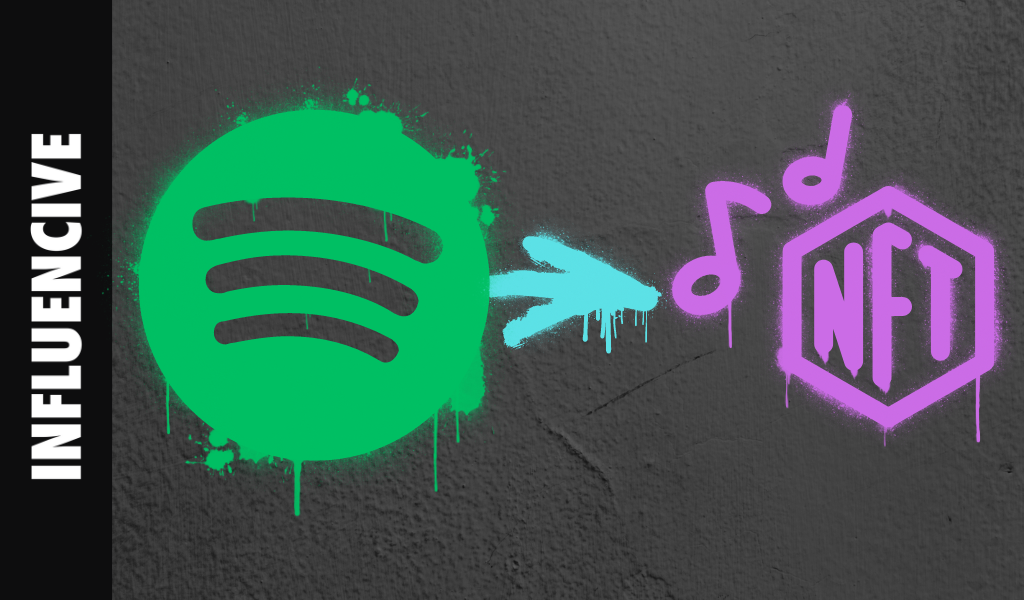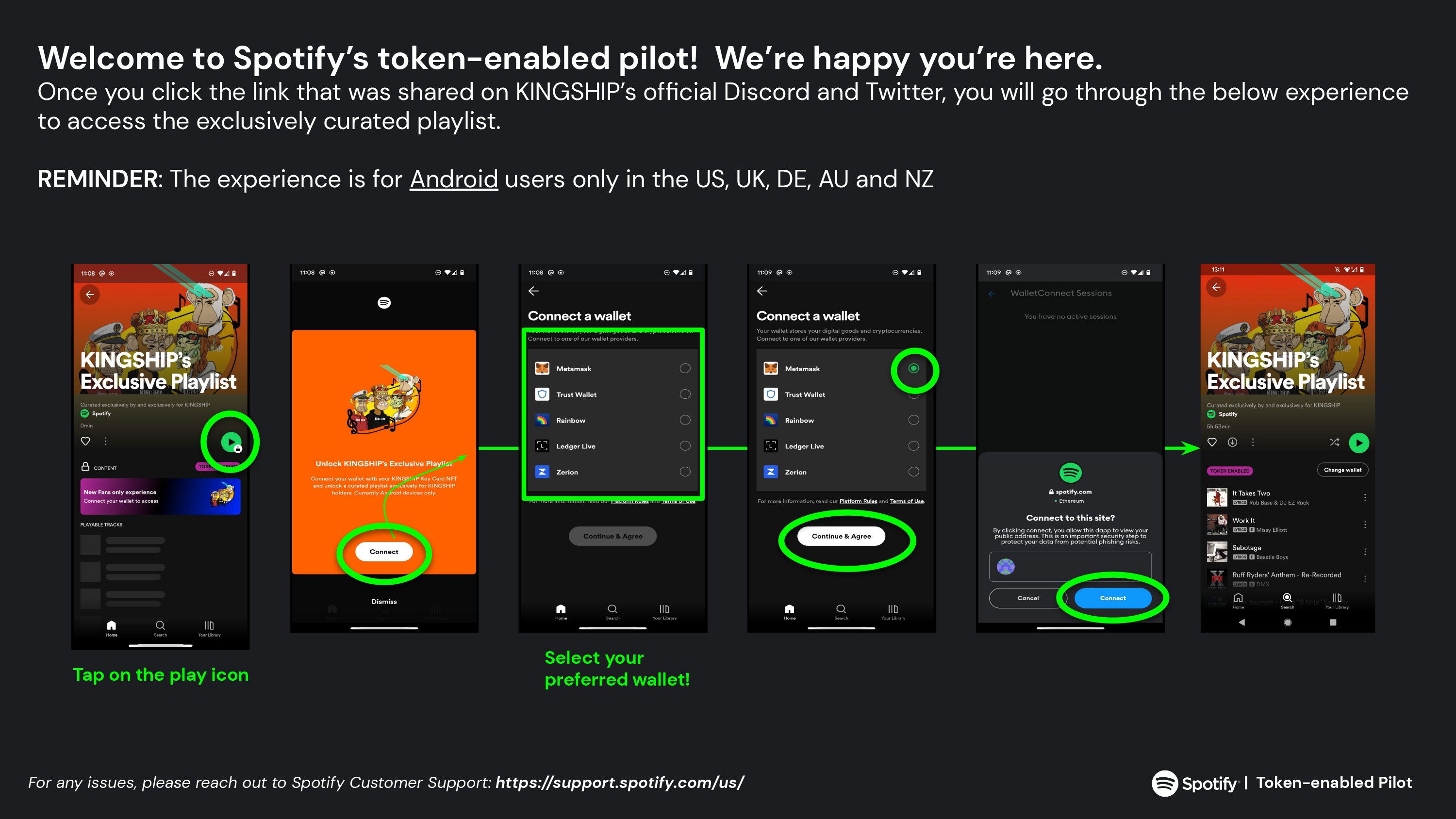Spotify, the world’s largest audio streaming platform, has announced they are testing the integration of NFTs with playlists on their platform.
This exciting development comes at a time where more Web2 brands are embracing the potential of Web3 technology. One of the most recent examples is YouTube installing a Web3 advocate, Neal Mohan, at the helm of operations to replace Susan Wojcicki.
Who Can Take Part In The Trial?
Currently, the new token-gated service is only available to residents of the United States, United Kingdom, Denmark, Australia, and New Zealand.
iPhone users unfortunately cannot take part; something which was to be expected due to the updated policy changes Apple made back in October 2022. The tech giant, much to the dismay of many Web3 and NFT enthusiasts, focused heavily on restricting the functionality of NFTs within their services. @OriginsNFT explains why this could be a misstep on the part of Apple:

Joining Spotify as partners in this pilot scheme are NFT collections: Fluf, Moonbirds, Kingship, and Overlord. It remains to be seen whether Spotify will expand this service to include more NFTs in the future, but one would assume that if the reception is favorable, we’ll see more partnerships start to blossom as we progress throughout the year.
The last criteria in order for a user to take part, is they must be a Spotify Premium member.
Spotify is Rolling Out NFT playlists? pic.twitter.com/0mQLgAsZ0N
— Bankless (@BanklessHQ) February 25, 2023
How Does It All Work?
Kingship, a virtual band hailing from The Metaverse and signed to Universal Music Group, put out a series of tweets informing their holders how to get involved.
The project has curated a special playlist containing tracks from the likes of Queen, Missy Elliot, Snoop Dogg and Led Zeppelin. For Kingship holders to gain access, they will simply need to connect their wallet to Spotify, much like how we connect our wallets to any other site in the usual manner.
Users are able to connect using MetaMask, Trust Wallet, Rainbow, Ledger Live, or Zorion.
Music To Investors Ears
Spotify’s move towards NFT integration comes at a time when the company is set to hold its Stream On event in around a week’s time. Moreover, the company recently announced the impending introduction of an Open-AI powered feature called “DJ”, which will deliver a curated selection of music alongside AI-powered spoken commentary about the tracks and artists the user likes.
Introducing DJ ✨ An entirely new way to play your @Spotify, powered by AI. Now rolling out to Premium users in the U.S. and Canada. Head to Spotify now to meet your DJ. pic.twitter.com/sbQr8JrrmF
— Spotify News (@SpotifyNews) February 22, 2023
Spotify’s DJ feature is an excellent example of how AI can be used to enhance the user experience. With DJ, users can discover new music and learn more about their favorite artists, all while enjoying a personalized listening experience.
This new feature is an exciting addition to Spotify’s already extensive library of features, which includes personalized playlists, podcasts, and of course, this new exploration into token gated services.
Furthermore, Spotify has been beta-testing Web3 integrations since May of last year, with it all beginning with testing NFT galleries on musicians profiles.
A Sound Investment?
In conclusion, Spotify’s move towards NFT integration is yet another significant step towards the mainstream adoption of Web3 technology. In this bear market especially, every seemingly small win like this is in fact a massive boom for the overall long term growth of the technology.
We’ll be keeping a keen eye on how this pans out for Spotify, their NFT partners, and whether other platforms are inspired to move in the same direction following its potential success!
Opinions expressed here are opinions of the Author. Influencive does not endorse or review brands mentioned; does not and cannot investigate relationships with brands, products, and people mentioned and is up to the Author to disclose. Accounts and articles may be professional fee-based.



